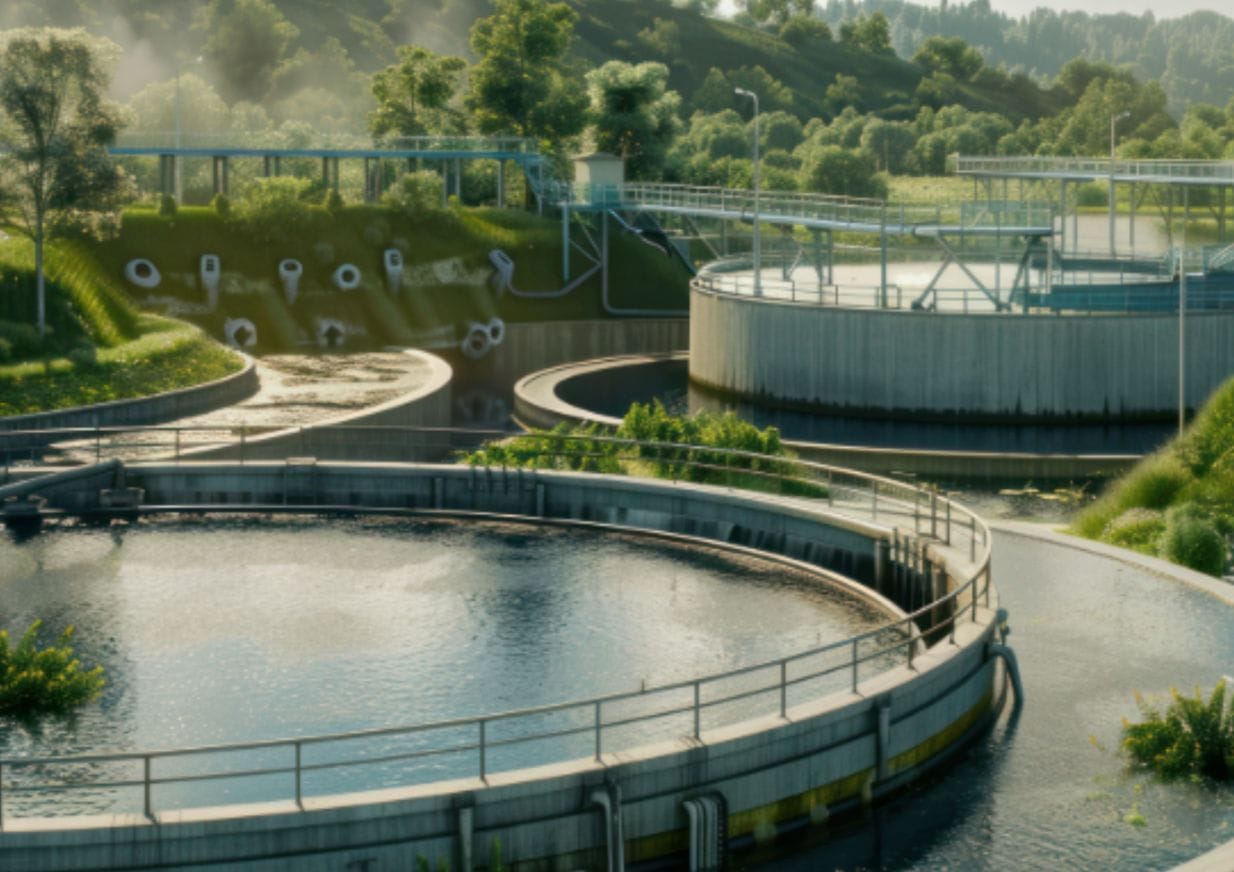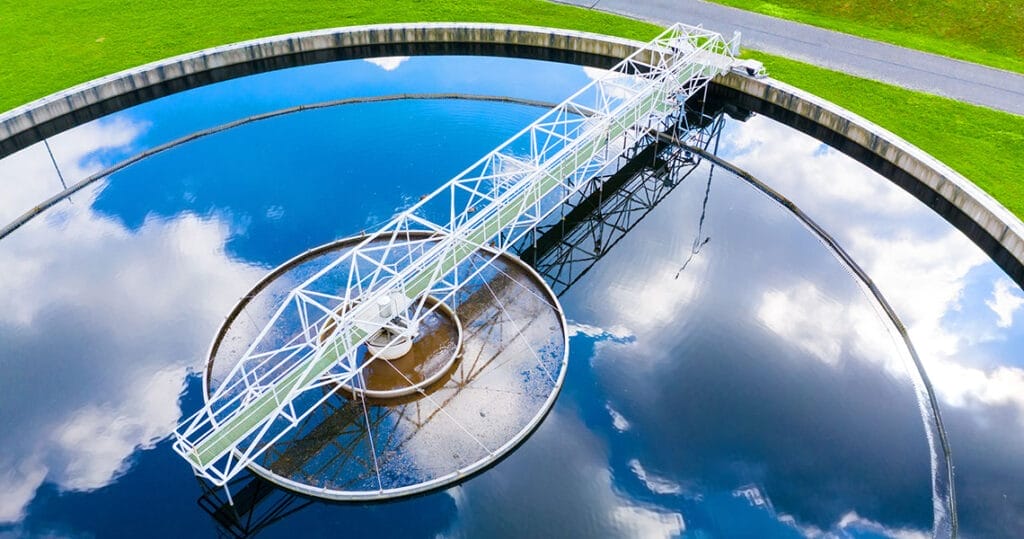Anaerobic water treatment breaks down organic matter in wastewater using anaerobic microorganisms in the absence of oxygen. It is commonly used for industrial wastewater, sewage sludge, and agricultural waste.
Key Steps in the Process:
- Pre-Treatment: Large solids and grit are removed to prevent clogging.
- Hydrolysis: Large complex organic molecules are broken down into simpler soluble molecules.
- Acidogenesis: Anaerobic microorganisms break down soluble materials into volatile fatty acids (VFAs) such as acetic acid (C2H4O2), hydrogen gas (H₂), and carbon dioxide (CO₂).
- Acetogenesis: VFAs convert into acetate (CH3OO–), H2, and CO₂.
- Methanogenesis: Methanogenic bacteria convert CH3OO–, H2, and CO₂ into methane (CH₄) and CO₂, producing biogas.
- Effluent Treatment: The treated water is discharged or further processed aerobically.
Limescale Issues in Anaerobic Systems
Limescale forms due to calcium carbonate (CaCO₃) and other mineral deposits, which can impact efficiency:
- Pipe and Equipment Scaling:
- Hard water leads to limescale accumulation in pipes, pumps, and digesters, reducing flow rates and heat transfer.
- Biogas Production Inhibition:
- Excess limescale coats bacterial colonies, reducing waste breakdown and methane yield.
- pH Balance Disruptions:
- High calcium and magnesium levels affect alkalinity, hindering microbial activity.
- Clogging of Nozzles and Valves:
- Deposits block spray nozzles, recirculation lines, and gas collection pipes.
- Deposits block spray nozzles, recirculation lines, and gas collection pipes.
Preventing and Managing Limescale
- Water Softening: Reduces calcium and magnesium levels.
- Chemical Additives: Scale inhibitors (e.g., phosphonates) prevent crystal formation.
- pH Control: Maintaining pH (6.8-7.5) minimises precipitation.
- Mechanical Cleaning: Regular flushing or acid descaling removes deposits.
- Proper System Design: Ensuring optimal flow rates and temperature control prevents scale build-up.
How Sidon Water’s Integro™ Technology Can Help
The Sidon Integro™ technology provides an innovative solution to limescale issues by electron injection, which prevents mineral precipitation and dissolves existing scale.
Scientific Basis
Limescale forms when calcium carbonate (CaCO₃) and magnesium carbonate (MgCO₃) exceed solubility limits. Sidon Integro™ disrupts these reactions:
- Prevention of Scale Formation:
- Electrons displace negatively charged ions (CO₃²⁻, HCO₃⁻, SO₄²⁻), preventing calcium (Ca²⁺) and magnesium (Mg²⁺) from forming solid precipitates.
- Dissolution of Existing Scale:
- Additional electrons reduce calcium and magnesium ions to neutral atomic states (Ca⁰, Mg⁰), preventing scale formation and quickly breaking down existing scale deposits.
- pH and Alkalinity Stability:
- Increased electrons prevent bicarbonate (HCO₃⁻) from breaking into carbonate (CO₃²⁻) and protons (H⁺), maintaining stability for anaerobic microorganisms.
- Colloidal Particle Suspension:
- Negatively charged silica (SiO₂–) and alumina (Al₂O₃–) remain in suspension, preventing further scale accumulation.
- Corrosion and Biofilm Inhibition:
- Sidon Integro™ prevents iron oxidation, reducing corrosion and biofilm formation.
Conclusion
Integrating Sidon Water’s Integro™ technology into anaerobic treatment systems reduces limescale issues, enhances microbial efficiency, and boosts biogas production. By preventing scaling, dissolving existing deposits, and stabilising pH levels, this solution ensures greater system reliability, lower maintenance costs, and improved operational efficiency. The long-term benefits include extended equipment lifespan, reduced chemical usage, and optimised anaerobic digestion performance.
As a chemical-free, sustainable solution, the Integro™ is a game-changer for anaerobic water treatment. Take the next step in optimising your system, contact us today to learn more about how the Integro™ can transform your water treatment process.


